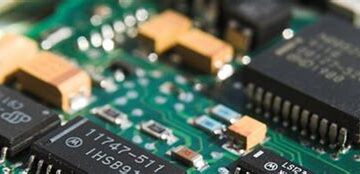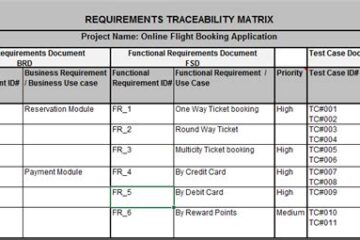What is an Electronics Contract Manufacturer (ECM)?
An Electronics Contract Manufacturer (ECM) is a company that specializes in designing, manufacturing, and assembling electronic components and products for other companies. ECMs provide a wide range of services, including printed circuit board (PCB) assembly, cable and wire harness assembly, box build assembly, and complete product assembly.
ECMs work with a variety of industries, including:
- Aerospace and Defense
- Automotive
- Consumer Electronics
- Industrial Equipment
- Medical Devices
- Telecommunications
By outsourcing the manufacturing process to an ECM, companies can focus on their core competencies, such as research and development, marketing, and sales, while the ECM handles the production and assembly of their products.
Advantages of Working with an Electronics Contract Manufacturer
There are several advantages to working with an Electronics Contract Manufacturer:
-
Cost Savings: ECMs can often manufacture products at a lower cost than in-house manufacturing due to their economies of scale, specialized equipment, and expertise.
-
Flexibility: ECMs can quickly adapt to changes in demand, allowing companies to scale production up or down as needed without investing in additional equipment or personnel.
-
Quality Control: ECMs have strict quality control measures in place to ensure that products meet or exceed industry standards and customer specifications.
-
Access to Expertise: ECMs employ experienced engineers and technicians who can provide valuable insights and recommendations throughout the manufacturing process.
-
Reduced Time to Market: By outsourcing manufacturing to an ECM, companies can bring their products to market faster, as the ECM can handle the production process while the company focuses on other aspects of the business.
Services Offered by Electronics Contract Manufacturers
Electronics Contract Manufacturers offer a wide range of services to meet the needs of their clients, including:
1. Printed Circuit Board (PCB) Assembly
PCB assembly is the process of soldering electronic components onto a printed circuit board. ECMs can provide both surface mount technology (SMT) and through-hole assembly services.
| PCB Assembly Type | Description |
|---|---|
| Surface Mount Technology (SMT) | Components are mounted directly onto the surface of the PCB using a paste-like conductive adhesive. |
| Through-Hole Assembly | Components are inserted into holes drilled in the PCB and soldered to pads on the opposite side. |
2. Cable and Wire Harness Assembly
Cable and wire harness assembly involves cutting, stripping, crimping, and soldering wires and cables to create a complete wiring assembly. ECMs can produce custom cable and wire harnesses for a variety of applications.
3. Box Build Assembly
Box build assembly is the process of integrating electronic and mechanical components into a complete product, such as a computer, medical device, or industrial control panel. ECMs can provide complete box build assembly services, including:
- Procurement of components
- Assembly and integration
- Testing and quality control
- Packaging and shipping
4. Electro-Mechanical Assembly
Electro-mechanical assembly involves the integration of electronic components with mechanical parts, such as motors, switches, and sensors. ECMs can provide complete electro-mechanical assembly services for a variety of products, including:
- Automotive components
- Industrial equipment
- Medical devices
- Robotics
5. Testing and Quality Control
ECMs employ strict testing and quality control measures to ensure that products meet or exceed industry standards and customer specifications. This can include:
- In-circuit testing (ICT)
- Functional testing
- Environmental testing
- Burn-in testing
- X-ray inspection

Choosing an Electronics Contract Manufacturer
When choosing an Electronics Contract Manufacturer, there are several factors to consider:
-
Experience and Expertise: Look for an ECM with experience in your industry and expertise in the specific services you require.
-
Quality Management System: Ensure that the ECM has a robust quality management system in place, such as ISO 9001 or AS9100 certification.
-
Technology and Equipment: Consider the ECM’s investment in advanced technology and equipment, which can impact the quality and efficiency of the manufacturing process.
-
Capacity and Scalability: Evaluate the ECM’s ability to handle your current and future production needs, as well as their ability to scale production up or down as needed.
-
Communication and Collaboration: Choose an ECM that values open communication and collaboration throughout the manufacturing process.
The Future of Electronics Contract Manufacturing
The electronics contract manufacturing industry is constantly evolving to meet the changing needs of customers and advancements in technology. Some of the trends shaping the future of ECM include:
1. Internet of Things (IoT)
The growth of the Internet of Things (IoT) is driving demand for connected devices and sensors, creating new opportunities for ECMs specializing in IoT product development and manufacturing.
2. Miniaturization
As electronic devices become smaller and more complex, ECMs are investing in advanced manufacturing technologies, such as 3D printing and micro-assembly, to meet the demand for miniaturized components and products.
3. Sustainability
There is a growing emphasis on sustainability in the electronics industry, with companies seeking to reduce their environmental impact and improve the recyclability of their products. ECMs are responding by implementing eco-friendly manufacturing practices and materials.
4. Automation and Industry 4.0
The adoption of automation and Industry 4.0 technologies, such as robotics, artificial intelligence, and the Industrial Internet of Things (IIoT), is transforming the electronics manufacturing landscape. ECMs are investing in these technologies to improve efficiency, quality, and flexibility.
Frequently Asked Questions (FAQ)
- What is the difference between an Electronics Contract Manufacturer and an Original Equipment Manufacturer (OEM)?
-
An ECM provides manufacturing services to other companies, while an OEM designs and sells products under its own brand name.
-
How do I choose the right Electronics Contract Manufacturer for my business?
-
Consider factors such as experience, expertise, quality management systems, technology and equipment, capacity and scalability, and communication and collaboration when choosing an ECM.
-
What certifications should I look for in an Electronics Contract Manufacturer?
-
Look for certifications such as ISO 9001 for quality management, AS9100 for aerospace and defense, and ISO 13485 for medical devices.
-
Can an Electronics Contract Manufacturer help with product design and development?
-
Yes, many ECMs offer design and engineering services to help customers develop and optimize their products for manufacturing.
-
How can I ensure the quality of products manufactured by an Electronics Contract Manufacturer?
- Work with an ECM that has a robust quality management system in place, and establish clear quality requirements and testing procedures. Regular communication and collaboration throughout the manufacturing process can also help ensure product quality.
In conclusion, Electronics Contract Manufacturers play a critical role in the production of electronic components and products for a wide range of industries. By outsourcing manufacturing to an ECM, companies can benefit from cost savings, flexibility, quality control, access to expertise, and reduced time to market. As the electronics industry continues to evolve, ECMs are adapting to meet the changing needs of customers and stay at the forefront of technological advancements.



0 Comments